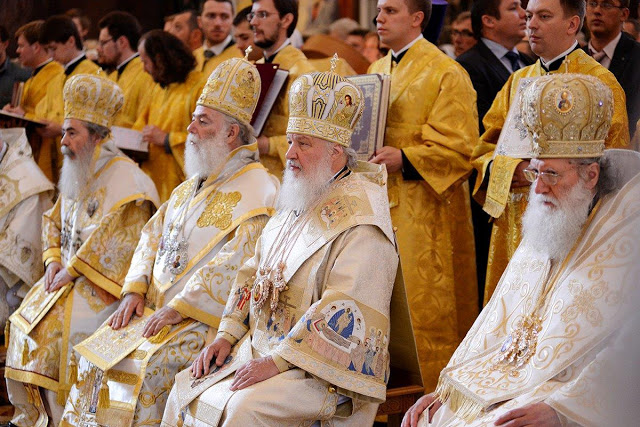Peace to you,
historia wrote: ↑Fri Feb 18, 2022 11:09 am
Christianity is one of the world's largest and most diverse religious traditions.
And yet, for brevity's sake, it's convenient to make reference to 'Christianity' or 'Christians' on this forum without having to reel off a litany of qualifiers about which particular churches, beliefs, and practices we are describing. But do we all have the same thing in mind when we do this?
Consider these comments from a couple of our friendly neighborhood atheists:
Bust Nak wrote: ↑Mon Sep 28, 2020 10:38 am
Take mainstream Catholic teaching, remove Mary, mother of God stuff, remove Papal authority. That's my working assumption of what Christianity is
Difflugia wrote: ↑Tue Feb 15, 2022 10:44 am
As far as I'm concerned, anyone that says they're Christian is Christian, but pretending that the Catholics are anything but the standard for orthodoxy is
chutzpah.
Questions for debate:
When making reference to 'Christianity' in general terms, should we all have in mind Roman Catholicism (or something close to that)?
Is that, in fact, the expression of Christianity you have in your mind when you personally use the term 'Christianity'?
If I use the term "Christianity" I will use a qualifier such as "Christianity (the religion)" to distinguish the religion from the faith. Because religion and faith are not the same, though not everyone accepts that.
For the most part (and no exceptions are coming to mind), when someone uses the term "Christianity", I think of the religion
and all its many sects and denominations. Roman Catholicism is necessarily included in that (perhaps the first 'daughter/sect'), and then another 'daughter/sect' came out of her, and then another, and then others out of them, etc, etc. I can understand why they do that to a point, considering how Luther felt about the RCC religion/leadership. But Luther did not come out of the RCC all the way; he carried some of her erroneous doctrines and teachings when he started a new sect (as each subsequent sect has done). Protestantism is not a different religion. Just a different sect of the same religion.
Of course, these days you must also clarify what you mean by the word, religion. Some people use the word religion as just meaning belief or faith (though I find this is mostly done by people who are trying to prove that someone else actually is religious when they claim not to be religious, refusing to accept that a person can have faith, but not religion). For me, by religion, I mean the institution... organized, institutionalized religion. The RCC. The LDS. The WTS/JW organization. Pentecostal. Anglican. Lutheran. All those evangelical groups, even though they might not always give themselves a name. ETC. So again, the RCC and every other sect and denomination are part of "Christianity" (the religion).
Sure, there are some differences in them, but they all have men as leaders, follow doctrines and traditions that have been handed down (and every sect that came out of a previous sect carries some of the baggage from that previous sect - such as the trinity doctrine, the 'hell' doctrine, the 'bible is the word of God' doctrine... as well as mimicking the previous religions set-up: religious leaders such as "popes", priests, reverends, governing bodies, rituals, 'articles of faith' that adherents must abide by, traditions/rules of men, etc.) And just compare the similarities of the RCC to the Roman state religion.
https://en.wikipedia.org/wiki/College_of_Pontiffs
**
As for being Christian, that has nothing at all to do with religion. Christ did not start a new religion nor continue a previous religion. God sanctioned one religion (the Temple/Levitical preisthood/law given through Moses)... UNTIL such a time as Christ came. Then we were meant to listen to Him, to worship in and through Him (in spirit and in truth). His promise is that if a person loves Him, they will remain in His word, keep His commands, and that person will be loved by His Father, and they will come and make their home with(in) that person (John 14:21, 23).
A Christian is a disciple of Christ who is also anointed with holy spirit. Being a member of a religion does not make a person Christian. Neither does (physical) water baptism (that was for repentance of sins as committed under the law/old covenant). The baptism of holy spirit (the water of Life) - the baptism that Christ gives us (Mark 1:8; John 20:22) - is what makes a person an anointed one (a Christian). Though a person can be a disciple without (yet) being Christian (as the apostles were disciples first, then later received holy spirit).
Peace again to you, and to you all,
your servant and a slave of Christ,
tammy





